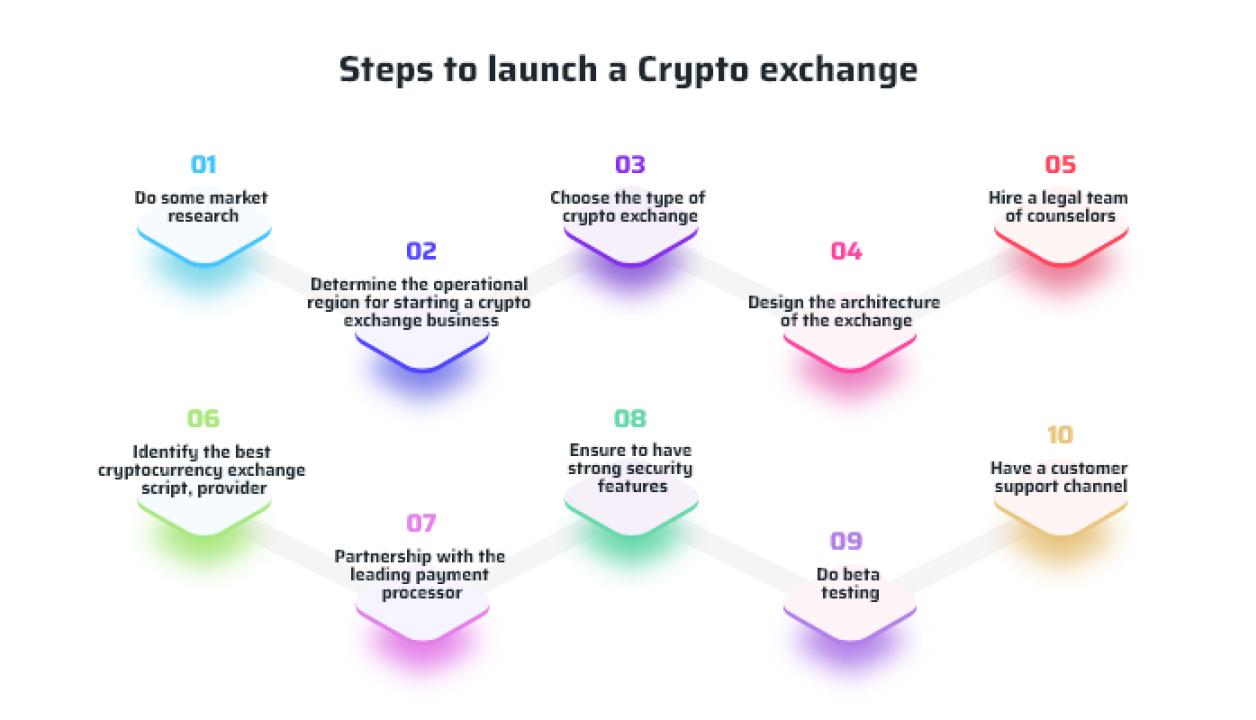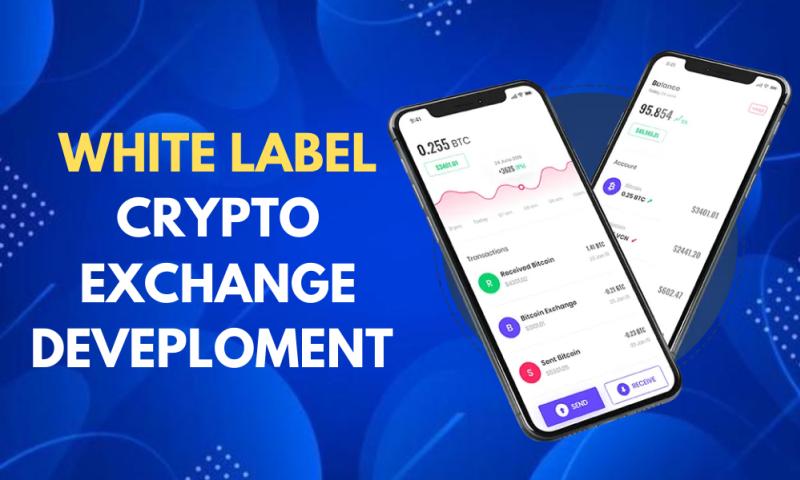The world of cryptocurrency is expanding rapidly, and with that growth comes the increasing demand for crypto exchanges. These platforms are the backbone of digital asset trading, providing users with the ability to buy, sell, and trade various cryptocurrencies. If you're thinking of entering the crypto exchange space, it’s essential to understand the fundamental steps to build a successful platform. In this article, we’ll walk you through the 10 essential steps to start building your crypto exchange, ensuring that you have a roadmap to success.
Understand the Market and Define Your Niche
Before jumping into development, you need to grasp the crypto market thoroughly. Start by researching current crypto exchanges and their models. Some cater to beginner traders, while others focus on seasoned investors or even institutional clients. Define your target audience and identify a unique selling proposition (USP) that sets your platform apart.
Decide on the Type of Crypto Exchange
There are three primary types of crypto exchanges: centralized, decentralized, and hybrid. Each comes with its own set of advantages and challenges.
Centralized Exchange (CEX): Provides high liquidity and is easier for beginners but involves more regulations and oversight.
Decentralized Exchange (DEX): Offers more privacy and control to users but may lack liquidity.
Hybrid Exchange: Combines the best features of both CEX and DEX, providing better security and user control with decent liquidity.
Choosing the right model is critical to your exchange's success.
Collaborate with a Crypto Exchange Development Company
Unless you're an experienced blockchain developer, building a crypto exchange from scratch can be overwhelming. Partnering with a crypto exchange development company can simplify the process. These companies provide customizable solutions, including ready-to-launch software, tailored to your business needs. Their expertise ensures that your platform meets all necessary technical and security requirements.
Ensure Regulatory Compliance
Regulations vary widely by country, and adhering to them is crucial to avoid legal pitfalls. You'll need to obtain appropriate licenses, adhere to anti-money laundering (AML) and know your customer (KYC) regulations, and ensure your platform meets local crypto trading laws. Hiring a legal advisor familiar with crypto regulations will help you navigate this complex area.
Design a User-Friendly Interface
One of the key factors determining the success of your crypto exchange is how user-friendly it is. A well-designed interface should be intuitive and allow users to trade seamlessly. Features such as advanced charting tools, real-time market data, easy deposit and withdrawal options, and responsive customer support should be included in the design process.
Integrate High-Performance Trading Engine
The trading engine is the core of any crypto exchange. It’s responsible for matching buyers and sellers, processing transactions, and calculating balances. You’ll need to ensure that your platform’s engine is fast, reliable, and capable of handling a large number of transactions per second. This is particularly important if you want to attract high-volume traders to your platform.
Incorporate Robust Security Features
Security is paramount when dealing with cryptocurrencies. A crypto exchange must protect users’ funds and data through multi-layered security measures. Integrate features like two-factor authentication (2FA), encryption, and cold storage of funds (keeping most of the assets offline to prevent hacking). Regular security audits and updates are also critical to maintaining trust and credibility.
Implement a Liquidity Solution
Liquidity is essential for a crypto exchange’s success, as it ensures smooth trading and minimizes price volatility. New exchanges often struggle with liquidity, so partnering with a liquidity provider or using automated market-making algorithms can be beneficial. High liquidity attracts more traders to your platform, creating a virtuous cycle of growth.
Offer a Diverse Range of Cryptocurrencies
To attract a broad audience, offer a diverse selection of cryptocurrencies. Bitcoin and Ethereum are must-haves but consider including popular altcoins like Binance Coin, Solana, and Cardano as well. You might also want to support tokens from new blockchain projects to appeal to early adopters.
Launch a Marketing Strategy
Once your crypto exchange is built and ready for launch, you’ll need a solid marketing strategy to attract users. Utilize SEO strategies to rank your platform on search engines, create engaging content, and leverage social media platforms to create a buzz. Collaborating with influencers and running paid advertising campaigns can also help in building credibility and attracting your first users.
Conclusion
Building a crypto exchange is no small task, but by following these 10 essential steps, you can position yourself for success in the rapidly growing world of digital assets. Start by understanding your market, choose the right exchange model, collaborate with a crypto exchange development company, and providing regulatory compliance. With the right team, technology, and marketing strategy, you can create a robust and secure platform that caters to the needs of crypto traders.
FAQs
How long does it take to build a crypto exchange?
It can take anywhere from a few months to over a year, depending on the complexity of the platform and regulatory approvals.
Do I need a crypto exchange development company to build a platform?
While it’s possible to build one in-house, collaborating with a specialized development company can save time and ensure the platform is secure and compliant.
What are the key security features of a crypto exchange?
Essential security features include two-factor authentication (2FA), encryption, and cold storage for funds.
How much does it cost to build a crypto exchange?
The cost can range from $50,000 to several million dollars, depending on the features and level of customization required.
Is regulatory compliance necessary for crypto exchanges?
Yes, to operate legally and avoid penalties, compliance with local and international regulations is crucial.












